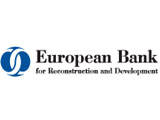Today.Az » Business » EBRD: "Pension fund, insurance engagement could boost private equity market in Transition countries"
15 November 2006 [11:59] - Today.Az
Greater engagement by private pension funds and insurance companies as well as a relaxation of regulatory constraints could boost further the already growing market for private equity funds in former command economies from central Europe to central Asia, the EBRD concludes in its latest Transition Report.

In a special report on Private Equity Funds, the EBRD says the market has improved considerably in its countries of operation over recent years, after earlier contending with problems linked to an underdeveloped banking system and immature stock markets. The volume of finance committed to private equity in the transition countries reached over $1.6 billion in 2005, compared with $1.4 billion in 2004 – the first year commitments exceeded the $1 billion mark, APA reports. Private equity fund investment had reached an earlier peak of $900 million in 1998, before falling back in the wake of the Russian financial crisis in that year. There was a rebound in 2004 which has continued up until this year. The majority of the private equity fund investment in 2005 came from foreign institutions while the domestic base of private equity investors in the region remained thin. This lack of domestic investment remained a crucial obstacle to the development of a sustainable, mature private equity market in the region. "This may change if private pension funds and insurance companies begin to engage in private equity investment and if regulatory constraints are relaxed," the EBRD report says. The EBRD chief economist Erik Berglof said the development of the market for private equity funds was a barometer that accurately reflected the economic transformation in the countries where the Bank operates. "In the 1990s general improvements in management and diversified funds paid off. Previously it had taken a long time for investors to break-even and exit. Now more sophisticated and targeted interventions are profitable and the returns come earlier. As the conditions for business improve, so does the market for private equity. It is a microcosm of the process of transition," Berglof said. The report noted that, despite variations linked to individual types of investment, the aggregate returns on private equity finds in the transition countries appear comparable to those in western Europe over a similar period. Improvements in returns have reflected a greater range of investment projects and greater access to stock markets. A trend towards larger funds has also produced higher returns. While the funds have embraced both traditional and newer hi-tech industries, there is evidence that a focus on one particular sector leads to lower average returns. Private equity fund involvement in companies in the region was helping to develop managerial skills, the EBRD noted. "When the quality of company management has been poor, this has had a negative impact on the performance of the investment but intervention by the equity fund can help mitigate this," the report says.
|